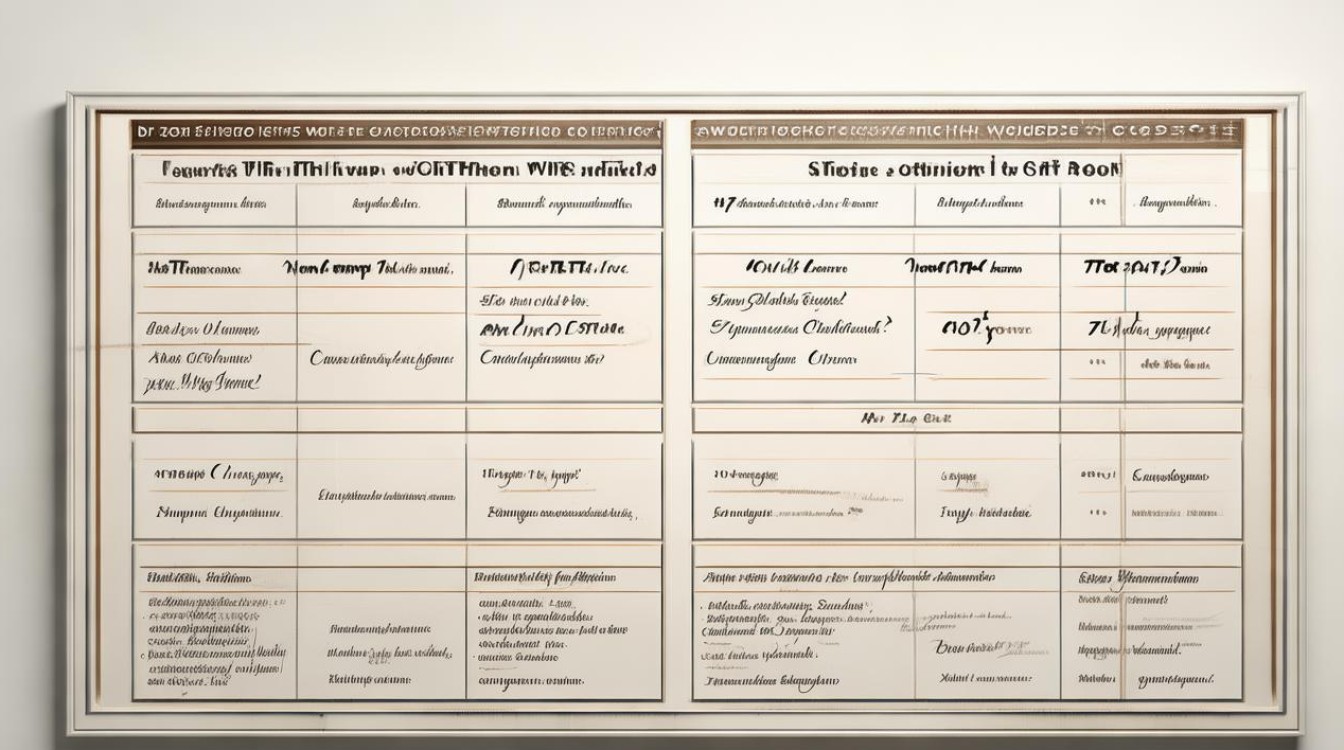英语中有许多拼写或发音相近的单词,但它们的含义却大不相同,这些词汇容易让学习者混淆,甚至母语人士也偶尔会用错,本文将列举一些常见的易混词,帮助大家更准确地掌握它们的用法。

Affect vs. Effect
这两个词可能是最常见的易混词之一。
- Affect(动词):表示“影响”或“感染”。
Example: The weather can affect your mood.
- Effect(名词):表示“效果”或“结果”;偶尔作动词时意为“实现”。
Example: The new law had a positive effect on the economy.
记忆技巧:affect”是动作(动词),而“effect”是结果(名词)。
Accept vs. Except
发音相似,但意思完全不同。
- Accept(动词):接受、认可。
Example: She accepted the job offer.
- Except(介词/连词):除了、不包括。
Example: Everyone went to the party except John.
Complement vs. Compliment
拼写仅差一个字母,但含义迥异。
- Complement(动词/名词):补充、使完整。
Example: The wine complements the meal perfectly.
- Compliment(动词/名词):称赞、恭维。
Example: She received a compliment on her dress.
Principal vs. Principle
发音相同,但用法不同。
- Principal(名词/形容词):校长、主要的。
Example: The principal reason for his success is hard work.
- Principle(名词):原则、准则。
Example: He refused to compromise his principles.
Stationary vs. Stationery
仅一个字母之差,但意思完全不同。
- Stationary(形容词):静止的、不动的。
Example: The car remained stationary at the traffic light.
- Stationery(名词):文具。
Example: She bought new stationery for school.
Lose vs. Loose
拼写和发音相近,但含义不同。

- Lose(动词):丢失、输掉。
Example: Don’t lose your keys.
- Loose(形容词):松的、宽松的。
Example: The screw is loose and needs tightening.
Their vs. There vs. They’re
这三个词发音相同,但用法各异。
- Their(代词):他们的。
Example: Their house is beautiful.
- There(副词/代词):那里、存在。
Example: The book is over there.
- They’re(缩写):they are。
Example: They’re going to the park.
Desert vs. Dessert
拼写相似,但意思和发音不同。
- Desert(名词/动词):沙漠;抛弃。
Example: The Sahara is a vast desert.
- Dessert(名词):甜点。
Example: I love chocolate cake for dessert.
记忆技巧:甜点(dessert)比沙漠(desert)多一个“s”,因为甜点更“甜”(sweet)。
Advice vs. Advise
一个名词,一个动词。
- Advice(名词):建议。
Example: She gave me good advice.
- Advise(动词):建议、劝告。
Example: I advise you to study harder.
Elicit vs. Illicit
发音相似,但含义截然不同。
- Elicit(动词):引出、引发。
Example: The question elicited a strong response.
- Illicit(形容词):非法的、违禁的。
Example: The police discovered illicit drugs.
Peak vs. Peek vs. Pique
三个词发音相似,但用法不同。

- Peak(名词/动词):顶峰、达到最高点。
Example: The mountain peak was covered in snow.
- Peek(动词/名词):偷看、瞥一眼。
Example: She took a quick peek at the gift.
- Pique(动词/名词):激起(兴趣)、恼怒。
Example: The mystery piqued his curiosity.
Allusion vs. Illusion
拼写和发音相近,但含义不同。
- Allusion(名词):暗示、间接提及。
Example: The speech contained an allusion to Shakespeare.
- Illusion(名词):幻觉、错觉。
Example: The magician created an illusion of levitation.
Eminent vs. Imminent
发音相似,但意思不同。
- Eminent(形容词):著名的、杰出的。
Example: He is an eminent scientist.
- Imminent(形容词):即将发生的、迫近的。
Example: A storm is imminent.
Farther vs. Further
这两个词都表示“更远”,但用法有细微差别。
- Farther:通常指物理距离。
Example: The next town is farther than I thought.
- Further:指抽象概念,如“进一步”。
Example: We need to discuss this further.
Lie vs. Lay
这两个动词的过去式和过去分词形式容易混淆。
- Lie(不及物动词):躺、平放。
- Present: lie / Past: lay / Past Participle: lain
- Example: I lie down every afternoon.
- Lay(及物动词):放置。
- Present: lay / Past: laid / Past Participle: laid
- Example: She lays the book on the table.
Ensure vs. Insure vs. Assure
三个词都与“保证”有关,但用法不同。
- Ensure(动词):确保某事发生。
Example: Please ensure the door is locked.
- Insure(动词):购买保险。
Example: He insured his car against theft.
- Assure(动词):向某人保证。
Example: I assure you, everything will be fine.

Discreet vs. Discrete
拼写相似,但含义不同。
- Discreet(形容词):谨慎的、不引人注目的。
Example: She was discreet about the private matter.
- Discrete(形容词):分离的、不连续的。
Example: The data is divided into discrete categories.
Bare vs. Bear
发音相同,但意思不同。
- Bare(形容词/动词):裸露的、暴露。
Example: The tree was bare in winter.
- Bear(名词/动词):熊;忍受。
Example: She couldn’t bear the pain.
Capital vs. Capitol
拼写相似,但含义不同。
- Capital(名词/形容词):首都、资金;重要的。
Example: London is the capital of England.
- Capitol(名词):国会大厦(特指美国国会大厦)。
Example: The protest took place near the Capitol.
Cite vs. Site vs. Sight
发音相同,但用法不同。
- Cite(动词):引用、引证。
Example: The student cited several sources in his essay.
- Site(名词):地点、场所。
Example: The construction site was busy.
- Sight(名词):视力、景象。
Example: The Grand Canyon is a breathtaking sight.
掌握这些易混词的区别,可以大幅提高英语表达的准确性,建议在日常阅读和写作中多加留意,逐步培养对词汇的敏感度。


